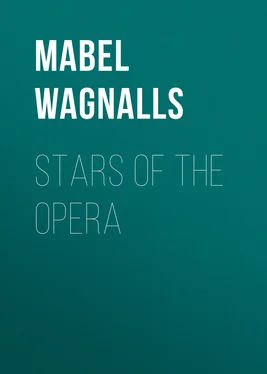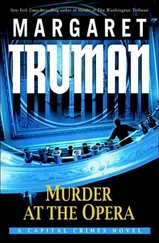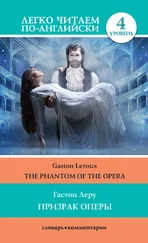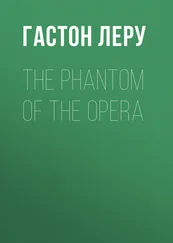Mabel Wagnalls - Stars of the Opera
Здесь есть возможность читать онлайн «Mabel Wagnalls - Stars of the Opera» — ознакомительный отрывок электронной книги совершенно бесплатно, а после прочтения отрывка купить полную версию. В некоторых случаях можно слушать аудио, скачать через торрент в формате fb2 и присутствует краткое содержание. Жанр: foreign_antique, foreign_home, music_dancing, на английском языке. Описание произведения, (предисловие) а так же отзывы посетителей доступны на портале библиотеки ЛибКат.
- Название:Stars of the Opera
- Автор:
- Жанр:
- Год:неизвестен
- ISBN:нет данных
- Рейтинг книги:5 / 5. Голосов: 1
-
Избранное:Добавить в избранное
- Отзывы:
-
Ваша оценка:
- 100
- 1
- 2
- 3
- 4
- 5
Stars of the Opera: краткое содержание, описание и аннотация
Предлагаем к чтению аннотацию, описание, краткое содержание или предисловие (зависит от того, что написал сам автор книги «Stars of the Opera»). Если вы не нашли необходимую информацию о книге — напишите в комментариях, мы постараемся отыскать её.
Stars of the Opera — читать онлайн ознакомительный отрывок
Ниже представлен текст книги, разбитый по страницам. Система сохранения места последней прочитанной страницы, позволяет с удобством читать онлайн бесплатно книгу «Stars of the Opera», без необходимости каждый раз заново искать на чём Вы остановились. Поставьте закладку, и сможете в любой момент перейти на страницу, на которой закончили чтение.
Интервал:
Закладка:
We have next the Church Scene, whose sublime music displays Gounod's special forte. He is perhaps greater as a composer of ecclesiastical music than anything else. His genius finds most congenial soil in religious themes, and therefore is this church scene with its mighty choruses and organ interludes truly grand. We hear the organ tones even before the curtain rises, and when it does Marguerite is discovered kneeling on a prayer-chair, apart from the other worshipers. She tries to pray and find comfort in her despair, but an awful voice mocks her endeavors, and that voice is Mephistopheles, who comes to her now in his true character. He is near her, but she can not see him, while he terrifies and tortures her with fearful prophecies. Vainly and desperately she strives to follow the familiar service, but she can hear only the demon's voice. It draws ever nearer, and its words increase her terror. At last with a cry of anguish Marguerite falls down unconscious. Mephistopheles stands over her, and his face beams with satanic glee.
True to Goethe's story, Marguerite becomes insane from grief and kills her child. The last act finds her in prison. Once again she is clad in white. Her hair hangs loose upon her shoulders, and chains bind her wrists. She is sleeping on a straw pallet as the curtain rises, and Faust enters with his companion. They have come to release the prisoner. But when she is aroused and urged to flee she pays little heed to their request, for she does not recognize them. But the sound of Faust's voice recalls to her that first meeting so long ago, when he said, "My fair lady, may I walk with you?" She sings again the charming phrase as we heard it in the second act; but it is now rendered with a certain pathos and simplicity that bring tears to our eyes.
She presently perceives Mephistopheles, and the sight fills her with terror. She falls on her knees and invokes the angels of heaven to pardon and receive her soul. The fervor of this prayer knows no bounds. A veritable religious ecstasy throbs through the music. The theme is broad and free, and seems to burst asunder every bond. It suggests a glory and splendor that are celestial. Ever higher and grander it grows. Marguerite is now standing with upraised arms; and altho Faust and Mephisto join in the singing, our attention is entirely riveted by that white-robed supplicant. The peerless theme is repeated three times, and always higher than before. Those soprano tones finally reach an atmosphere so clear and rare that they seem to carry the soul of Marguerite with them. The last high B soars up to heaven like a disembodied spirit.
It matters not what occurs after this. We have a dim consciousness of Marguerite falling down, of some words of lament from Faust; but for us the opera was ended with that last supernal note.
"WERTHER"
Madame Eames is the only prima donna whom America has heard in "Werther"—a work which in Paris ranks as Massenet's best. But she does not sing it often, because, as she says, "It all lies in such a low key; and to sing always in one place is hard on the voice." Then she adds, "But the love-music of Werther is beautiful."
Goethe's love-stories find favor with French composers. Massenet has accomplished with "Werther" what his predecessors have done with "Mignon" and "Faust." His work is very recent and altogether unique. The story is not dramatic, and there are no regulation operatic characters,—no gods, no kings, no peasants, gypsies, fairies, demons, villains, slaves, soldiers, and not even a chorus. The scenery is also unconventional; not a palace, nor a mountain, nor a dungeon in the whole play.
Madame Eames is the only prima donna whom America has heard in "Werther"—a work which in Paris ranks as Massenet's best. But she does not sing it often, because, as she says, "It all lies in such a low key; and to sing always in one place is hard on the voice." Then she adds, "But the love-music of Werther is beautiful."
The dramatis personæ of "Werther" are taken from "ye lower middle classes," and they are graced with such names as Schmidt, Johann, Sophia, and Katie. We find it agreeable and gratifying to see our own common selves and everyday emotions elevated to the regions of classic music.
It is easy to understand why Massenet was attracted by the story, in spite of its dramatic weakness and lack of stage effects. It offers unbounded opportunities for love-music. Most opera composers must content themselves with one rousing duet and perhaps a solo or two; but in this story the hero sings of love from first to last.
The prelude to this homely opera is like the blessing before a meal. It is peaceful and soothing, and might be called a pastorale.
As the curtain rises we are greeted with the chatter and laughter of childish voices: two innovations at one stroke, for real children and real laughter have never before held a place in grand opera. This first scene of "Werther" forms a pleasing summer picture. We see the garden and terrace of a simple country house, whose owner, the town bailiff, is seated upon the veranda surrounded by his six children, to whom he is teaching a Christmas carol. He seems to be teaching them, but in point of fact he is teaching the audience this charming melody, which must be kept in mind, for it recurs at various intervals during the opera. So the children sing at first very loud and badly. The good-natured bailiff shakes his head and stops his ears. After a second attempt the song goes smoothly, and during this performance Schmidt and Johann enter the garden. These are some tavern friends of the bailiff, who lend variety to the music by giving occasion for the inevitable drinking-song. They compliment the children and inquire after Charlotte. "She is dressing for a ball," answers Sophia, the bailiff's second daughter.
We might tire of this plain conversation and the buffoon manners of Schmidt and Johann, but the accompanying music is of absorbing interest. Massenet makes much use of counterpoint, which has been broadly defined as the art of combining melodies. A crude but familiar example is that wonder-inspiring piano performance of "Yankee Doodle" in one hand with "Fisher's Hornpipe" in the other. It is interesting to follow the various themes in Massenet's orchestra. Sometimes a bit of the Christmas carol combines with the gruff, reeling song of Bacchus, which, in turn, is blended with a broad and noble theme that always appears in connection with the name of Charlotte. Another theme, that might be characterized as severely intellectual, asserts itself whenever the conversation turns upon Albert, her absent fiancé.
Schmidt and Johann go off arm in arm, lustily singing, "Vivat Bacchus."
Sophia enters the house, while the bailiff retires with the children to an alcove on the veranda, where we see him patiently rehearsing that Christmas carol, word for word.
The music now undergoes a transition, like a dreamer turning in his sleep. There are harp-chords, arpeggios, and trills written soft and "dim."
A richly clad traveler enters the garden, looking about him with evident emotion. It is Werther, returned after years of absence to his native village.
"I know not if I dream or wake," are his first words, while the instruments recall that pastoral motif of the prelude. Birds and trees and the limpid brook are all apostrophized in word and tone, until, with a sunburst of rising chords, there is introduced a new and radiant theme, eulogizing—
"All nature, full of grace,
Queen over time and space;"
while under the spell of his emotions—for Werther is a poet and a dreamer—there comes to him, like the song of angels, that blessed Christmas carol which the children are singing softly and with perfect rhythm.
The already familiar Charlotte-theme announces the heroine's entrance. The girlish costumes of this bourgeoise character are unusually becoming to Madame Eames; they present her in quite a new light, and her first entrance gives a pleasing surprise to the audience.
Читать дальшеИнтервал:
Закладка:
Похожие книги на «Stars of the Opera»
Представляем Вашему вниманию похожие книги на «Stars of the Opera» списком для выбора. Мы отобрали схожую по названию и смыслу литературу в надежде предоставить читателям больше вариантов отыскать новые, интересные, ещё непрочитанные произведения.
Обсуждение, отзывы о книге «Stars of the Opera» и просто собственные мнения читателей. Оставьте ваши комментарии, напишите, что Вы думаете о произведении, его смысле или главных героях. Укажите что конкретно понравилось, а что нет, и почему Вы так считаете.












